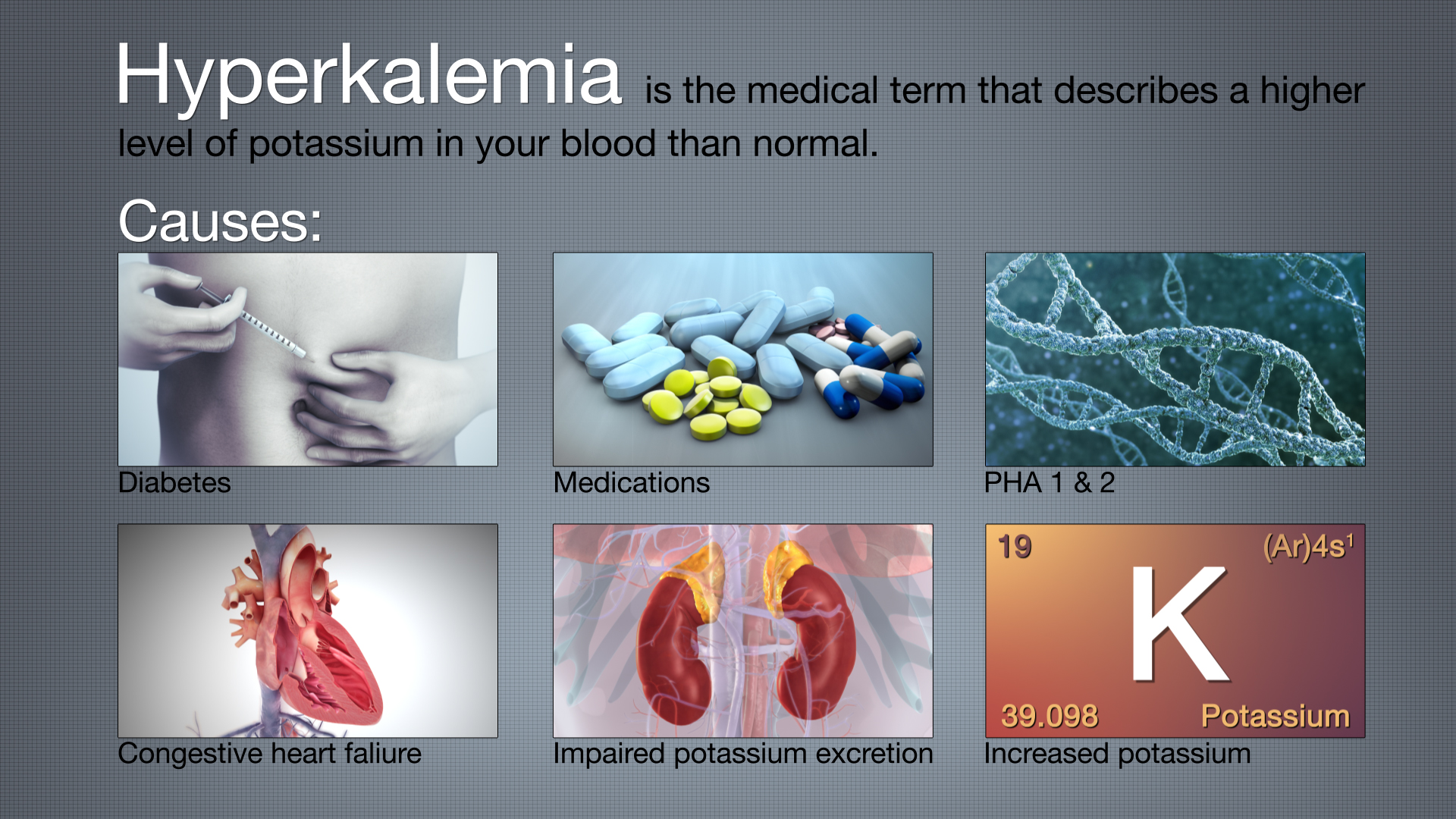When the potassium levels in a person’s blood are higher than normal, the condition is called Hyperkalemia. Potassium is both an electrolyte and a mineral. All the muscles, including the ones controlling the heartbeat and breathing, need potassium to work. We get potassium from the food we eat. The amount of potassium that the body needs is absorbed and the extra potassium is removed from the blood by the kidneys. When the kidneys do not remove the extra potassium from the blood, there is a build up of extra potassium and this condition is called hyperkalemia. Hyperkalemia is a dangerous condition and can also be a cause for heart attack.

Symptoms
Most people do not experience any symptoms of hyperkalemia. When they do, the most common ones are fatigue, muscle weakness, nausea, difficulty breathing, irregular heartbeat and chest pains.
Causes
The main cause for hyperkalemia is chronic kidney disease and acute kidney failure. When the kidneys don’t work properly, they are not able to remove the extra potassium from the blood. So the potassium, instead of leaving the body through urine, travels back into the bloodstream. Over a period of time, potassium levels in the blood build up. Other common causes of hyperkalemia are, dehydration, uncontrolled diabetes, certain medications such as ACE inhibitors and beta blockers, some injuries which cause excessive bleeding, excessive use of potassium supplements. The hormone aldosterone signals the kidneys to remove the potassium. Certain diseases such as addison’s disease lower the production of aldosterone and lead to hyperkalemia. Excess potassium in the diet can also lead to hyperkalemia.
Treatment
Treatment of hyperkalemia varies depending on the cause of the disease. Hyperkalemia is usually treated through diet and medicines. Treating kidney disease is most important. Other treatment commonly include going on a low potassium diet, changing medicines or stopping medicines that are resulting in hyperkalemia and taking medicines which lower the potassium levels in the body. Medicines that are used to reduce the potassium levels are called potassium binders. It sticks to the potassium in the blood and prevents it from being absorbed back into the bloodstream.
Foods that are high in potassium are bananas, oranges, grapefruits, tomatoes, asparagus, brussels sprouts, beans, most meats, fish, and salt substitutes.
Hyperkalemia should not be left untreated because it can cause changes in the heart rhythm that may be life threatening. It may also cause paralysis.
Disclaimer: The information in no way constitutes, or should be construed as medical advice. Nor is the above article an endorsement of any research findings discussed in the article an endorsement for any of the source publications.
Sources-
- https://www.medicalnewstoday.com/articles/324913.php
- https://www.kidneyfund.org/kidney-disease/chronic-kidney-disease-ckd/complications/high-potassium-hyperkalemia.html#symptoms-of-high-potassium
- https://www.webmd.com/a-to-z-guides/hyperkalemia-potassium-importance#2
- https://en.wikipedia.org/wiki/Hyperkalemia#Causes
Several people think bed-wetting happens only to kids, but it's an issue that can occur with grown-ups also. One might feel embarrassed to wet the sheets, but it's not their fault, it could be due to a medical condition, medicine, or an issue with their bladder.
Read More..










